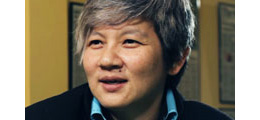5 Common Start-up Mistakes to Avoid - Business Insight

5 Common Start-up Mistakes to Avoid
In today’s dynamic and competitive world, Small and Medium Enterprises (SME) play a big role in elevating the economy. According to the World Economic Forum, ‘SMEs are seen to be shock absorbers, innovators, and contributors to a country’s economic growth’. But before success, every SME will go through the struggles of being a start-up.
At Canon Think Big, we know that the start-up journey is rarely smooth sailing. In our many conversations with the country’s most inspiring entrepreneurs, we have heard stories of loss and defeat, of mistakes and misfortune. We have compiled a list of common start-up mistakes to help you be better informed and guide you in your journey to business success.
Mistake No. 1: Losing Focus
Knowing how to spot an opportunity is good, but knowing which opportunity will be beneficial to the business in the long-term is better. A growing company may end up spreading itself too thin if it will pursue everything that comes its way. Whether adding a new product feature, courting a new market, or pursuing an alternative idea, always take a step back and see the big picture. Much of the world’s most successful businesses have spent years focusing on their main product before diversifying into related products. As Dr. David Joseph Schwartz, author of the book ‘The Magic of Thinking Big’, once said, “Do what you do better…and do more of what you do…”

When Mr. Zain and Mr. Kevin Toh started Wood Doctor in 2003, it had a staff of two and made just $1.5 million in its first year. Today, Wood Doctor is a $15 million-a-year business with some 120 employees. “We both had a dream for a wood flooring company that was better than the rest,” said Mr Zain. “We wanted to offer uniqueness and quality. We didn’t want to join the price war.”
The secret to their success is focus. They wanted to be a luxury brand in a market flooded with commodity wood flooring. They worked to establish Wood Doctor as a prestige brand targeted at upmarket clients and top local architects.
Today, they have successfully remained faithful to that market positioning.
Mistake No. 2: Spending Mindlessly

Spending too much or too little can affect business growth in the long run. A huge, designer office may feel nice, but is it essential in the early stages of your business? A basic, laser printer may be affordable, but can it deliver the high quality output that attracts more customers? The key is learning how to evaluate which things the company must really spend on. Always prioritise productivity investments, for these are the ones that will help grow your business and propel you to success.
Chef Willin Low of the Wild Rocket Group of restaurants put it quite succinctly “You shouldn’t spend money until you made money.” It has been one of his guiding principles ever since he started. He adds, “We never borrowed money and started small. Don’t be too ambitious.”
Mistake No. 3: Hiring Carelessly

People will always be the driving force of every company. You may have the most promising business idea, but in the hands of an incompetent or uncaring staff, it will amount to nothing.
For any business to succeed, it must be in the capable hands of people who share a common goal – to make the start-up grow. People who are not fit or ready for the job should not burden the company. While it is never easy to do, sometimes letting people go is necessary for greater good.
Ms. Elim Chew, founder of 77th Street, one of Singapore’s most successful street wear brands, is a firm believer in hiring people who share her passion. True enough, she will only start a new outlet if she can find someone who believes in the vision of the company to run it.
Her reasoning is simple: when you put people without the passion and love for the business in charge, the shop will just be a shop. But if you put people who love what they do and can align with your vision, the shop, and inevitably your vision, will flourish.
Mistake No. 4: Failing to Adapt

Be prepared to review, revise, and change your product. Even the most researched business plans may initially fail to satisfy market needs. If your product fails to make a great impression, it’s not necessarily the end of it. Henry Ford failed his early businesses before finding success with the innovative assembly line manufacturing of Ford Motor Company. He is proof that while success may be elusive at first, one should never give up on working towards it.
Maybe your product can be more user-friendly or responsive. Maybe your service can offer more value with a feature that is not being delivered by others. Maybe your company can be presented in a fresher way to attract customers. Learn to embrace change, for this is crucial to the future of your business.
Singaporean entrepreneur Mr. Low Cheong Kee, CEO of Home-Fix DIY shared his own experience managing a start-up, “In our early days, we focused mainly on moving power tools, hammers, drills, screwdrivers and the like. But as the consumer lifestyle evolved, we re-positioned ourselves as a solution provider. This gave us more room to expand and grow the company.”
Mistake No. 5: Not Having an Exit Plan

Always begin with an end in mind. This is important especially when you are planning to have investors on board. They need to see that they are investing on a business model, not just a passionate dream. If you do become successful and decide to take a step back like Bill Gates did with Microsoft, what is the plan? Who will take over the company?
“Thinking Big means thinking beyond two generations. You have to build a succession team,” said Mr. Kenny Yap, Executive Chairman of the successful integrated ornamental fish provider Qian Hu Corporation Limited.
Every start-up aims to succeed, but what happens when you fail? Do you sell your shares? Do you liquidate your assets? Do you merge with another company? Anyone who starts a business must know where it is headed, success or failure notwithstanding.
Learning from Mistakes
“Everybody makes mistakes. But you must turn these mistakes into lessons. Armed with those lessons, we tried to diversify our portfolio and moved to another kind of business model,” Mr. Kenny Yap confessed candidly. Mistakes may have disrupted their business in the past, but the lessons they learned proved invaluable in achieving the success they are enjoying today.
Mistakes are part of every entrepreneur’s journey, sometimes you will find yourself committing them unknowingly. Should you falter along the way, remember to Think Big. Thinking big is knowing how to manoeuvre gracefully around obstacles and get back to course. Business survival lies in your ability to rise above and turn failure into something productive.
